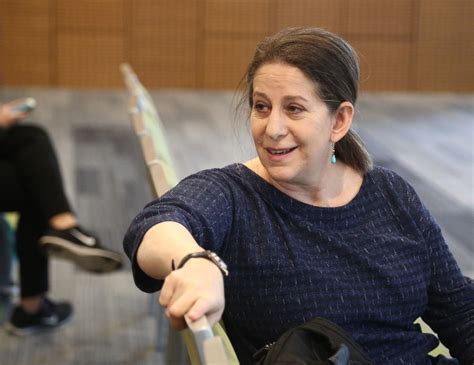Top 104 Tibetan Quotes & Sayings - Page 2
Explore popular Tibetan quotes.
Last updated on December 25, 2024.
Up to now my involvement in the Tibetan freedom struggle has been part of my spiritual practice, because the issues of the survival of the Buddha Teaching and the freedom of Tibet are very much related. In this particular struggle, there is no problem with many monks and nuns, including myself, joining.
I think it's more, at least at the time, a sense of abstraction. My mind doesn't really work in a way where there's a definitive sense of something. I go one way and then it opens up into a million different ideas, and somehow, when you look at the art, Buddhist art, or particularly Tibetan art, you know, it's a similar thing. All of a sudden there are a million lotus leaves and you're following one to the next and to another, and I related to that, and it felt simple and easy to me. And it made me feel smart.
We need a sense of the oneness of the 7 billion human beings alive today. When I meet people, I don't think about being different from them, about being Tibetan, Buddhist or even the Dalai Lama. I only think about being a human being. We all share the potential for positive and negative emotions, yet one of our special qualities is our human mind, our intelligence. If we use it well we'll be successful and happy.
Dreams are a reservoir of knowledge and experience yet they are often overlooked as a vehicle for exploring reality. In the dream state our bodies are at rest, yet we see and hear, move about and are even able to learn. When we make good use of the dream state it is almost as if our lives were doubled: instead of a hundred years we live to be two hundred -- Tibetan Buddhist Tarthang Tulku from
Gonpo Tso was born a princess. As a young woman, she dressed in fur-trimmed robes with fat ropes of coral beads strung around her neck. She lived in an adobe castle on the edge of the Tibetan plateau with a reception room large enough to accommodate the thousand Buddhist monks who once paid tribute to her father.
It is my dream that the entire Tibetan plateau should become a free refuge where humanity and nature can live in peace and in harmonious balance. It would be a place where people from all over the world could come to seek the true meaning of peace within themselves, away from the tensions and pressures of much of the rest of the world
My mother was a spiritualist. We had weekly séances at our house with a neighbor who was a medium and various friends, and so I was brought up with the idea that there are many realms of being all around us. So that prepared me for Buddhism, and especially Tibetan Buddhism with all its talk of different realms and dimensions of being.
The whole Hollywood conception of Tibet as this peace-loving country denies the complex humanity of the Tibetan people. Their ideas exist in a high degree of tension with impulses toward corruption, toward violence, toward all sorts of things. The Dalai Lama himself would say that he has to fight these impulses himself on a daily basis.
The Himalayan Glaciers on the Tibetan Plateau have been among the most affected by global warming. The Himalayas...provide more than half of the drinking water for 40% of the world's population...Within the next half-century, that 40% of the world's people may well face a very serious drinking water shortage, unless the world acts boldly and quickly to mitigate global warming.
My favorite crypted is definitely Yeti because it's once removed. It's not as popular as Bigfoot or Sasquatch, but it's more exciting. Yetis are of Tibetan origin, China or so, around Russia. They're more of a snow-based giant hominid. Apes living up in the snow? That doesn't make any sense! Well! People have seen them.
It is important to have determination and optimism and patience. If you lack patience, even when you face some small obstacle, you lose courage. There is a Tibetan saying, "Even if you have failed at something nine times, you have still given it effort nine times." I think that's important. Use your brain to analyze the situation. Do not rush through it, but think. Once you decide what to do about that obstacle, then there's a possibility that you will achieve your goal.
When you see a Tibetan doctor taking care of a patient, first of all, of course there are many wonderful medicines that come from [there in the past] 2,000 years. But this doctor is usually so attentional, so kind, and so careful of what you really feel and then [he sees] you as a human being instead of running you through some quick tests. So that itself, the trust and confidence in someone that cares for you is of course so invigorating... that someone cares.
There are many graphic artists who have interpreted The Ancient One as a Tibetan Buddhist Lama, we're kind of shifting that a bit. We're trying not to be fixed, we're trying not to be fixed to any one thing, any one gender, any one spiritual discipline, and any one race even; we're just trying to wing it beyond that. So it's a new gesture really, just another interpretation.
The Tibetan religion has a past. And furthermore it has such an appeal. There again young people today are drawn to Buddhism and to Tibet. It's not only because of the Dalai Lama. It's because of what Tibet represents. There is a vast reservoir of knowledge, of mystical knowledge, which can be found in Tibet.The Chinese shouldn't be afraid of that really. They have other means of survival.
If enough people are sensitive to the tragedy of Tibet, I think it will produce a change politically as well. But furthermore, it's important for the people in Tibet. Now communication is such [that] people know what is happening. Even Tibetan people would know that the Interfaith or the international group of religious people - that everybody who is religious is taking up their cause. It would help them a lot if we give them courage, and that in itself is enough.




























